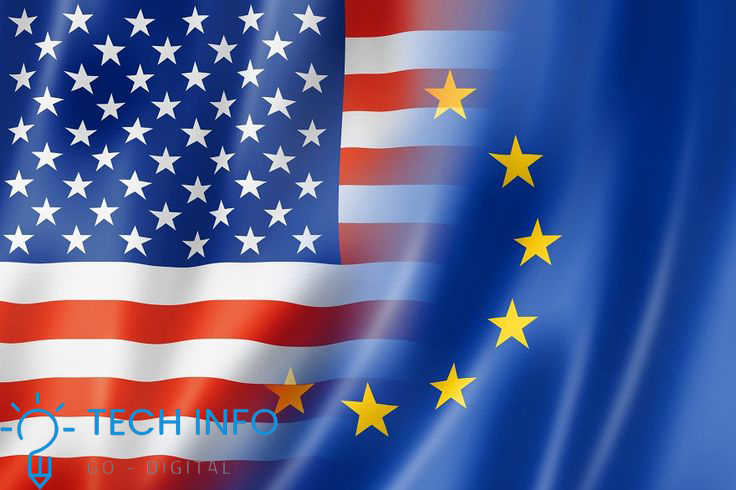Table of Contents
ToggleEuropean Leaders Worry They’re Too Reliant on U.S. Tech – A Wake-Up Call for Digital Sovereignty
In recent years, European leaders have grown increasingly uneasy about their continent’s overwhelming dependence on American tech giants like Google, Microsoft, Amazon, Meta, and Apple. From cloud infrastructure and artificial intelligence to digital advertising and search engines, the dominance of U.S. firms in Europe’s digital ecosystem has triggered a call for “digital sovereignty.”
🇺🇸 U.S. Tech: Backbone of European Systems?
Much of Europe’s digital infrastructure is powered by U.S.-based companies. Major government services, financial systems, healthcare data, and corporate operations rely on platforms like Microsoft Azure, AWS, and Google Cloud. While these tools offer cutting-edge efficiency and innovation, they also raise critical concerns:
- Data security & privacy: Can European citizens’ data be safely stored under U.S. jurisdiction, especially with laws like the U.S. CLOUD Act?
- Geopolitical dependence: What happens if political relations shift? Will access to vital infrastructure be used as leverage?
- Loss of innovation control: Are European firms being outpaced and overshadowed by U.S. R&D budgets?
🛡️ The Push for Digital Sovereignty
European policymakers are calling for reduced dependence on foreign tech firms and increased investment in homegrown technologies. This has led to strategic initiatives such as:
- GAIA-X: A federated cloud project designed to give Europe more control over its data infrastructure.
- EU AI Act: One of the world’s first comprehensive regulations on artificial intelligence, setting ethical and legal boundaries.
- Investments in semiconductors and quantum tech: Europe is funneling billions into local chip production to reduce reliance on U.S. and Asian suppliers.
🇪🇺 The Challenges Ahead
Despite ambitions, Europe faces stiff hurdles:
- Lack of scale: European tech firms struggle to compete with Silicon Valley’s scale, funding, and ecosystem.
- Brain drain: Top European talent often ends up working for U.S. tech companies due to better opportunities.
- Fragmentation: Regulatory and language differences across the EU can stifle pan-European tech ventures.
🔄 Dependency vs. Collaboration
It’s not about cutting ties with the U.S.—but about balancing power. The goal is not isolationism, but resilience. Europe wants partnerships on equal footing, not dependencies.
Many experts argue for building a transatlantic tech alliance based on shared values—democracy, privacy, and rule of law—while still encouraging Europe’s digital self-reliance.
🧠 Final Thoughts
Europe’s tech future hinges on strategic autonomy. The current dependency on U.S. platforms is not just a business concern—it’s a sovereignty issue. The path forward involves:
- Investing in local startups and research,
- Harmonizing digital policy across member states,
- And ensuring citizens’ data is protected under European laws.





